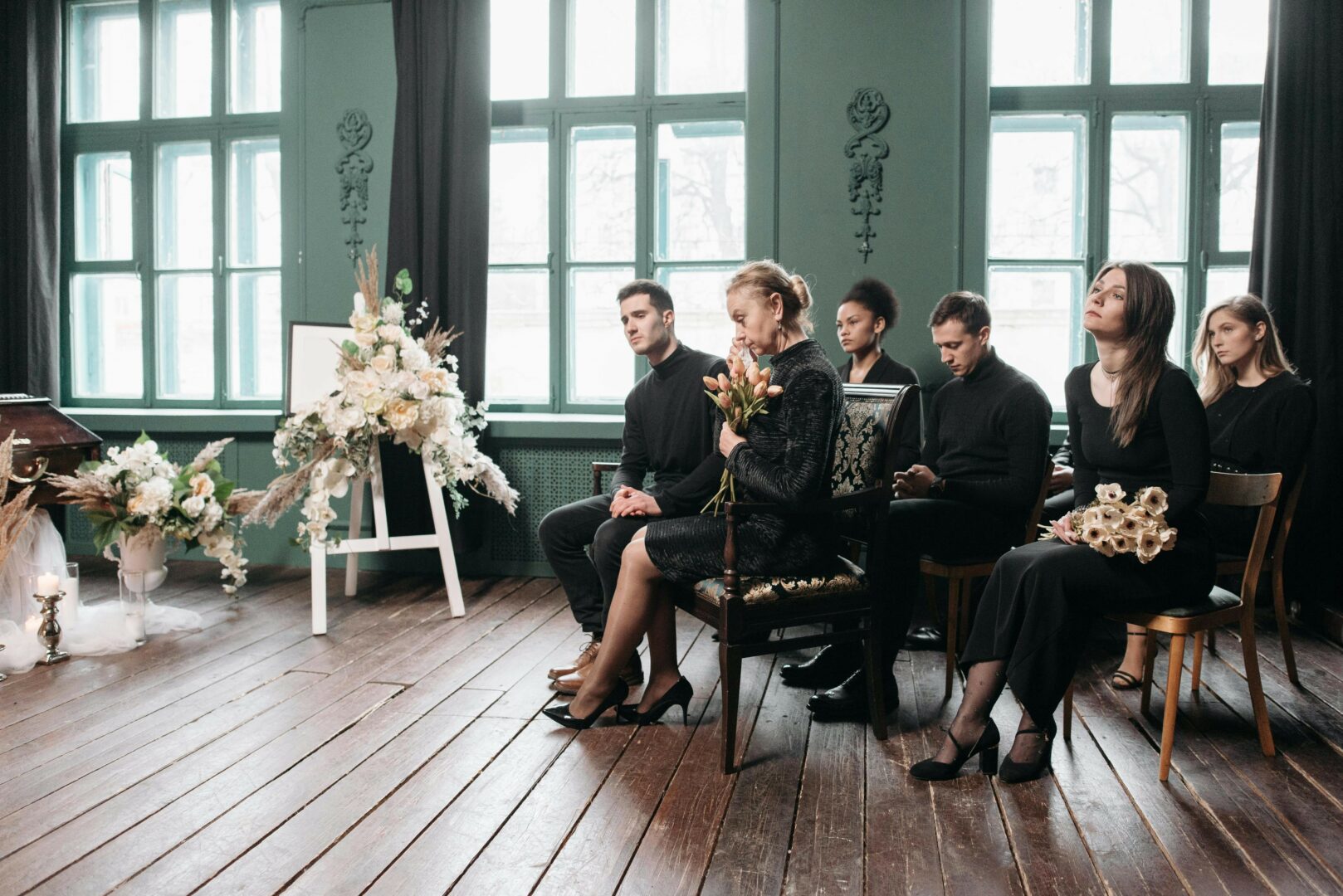There are so many messages we receive from the world around us regarding grief: various ways that TV shows and movies portray characters grieving, professionals reinforcing models of grieving as a linear process, and commentary from our friends, family, and community around us. How we should and shouldn’t be grieving and what we should and shouldn’t be doing seep into our culture and brains and put pressure on all of us to grieve correctly. And the truth is…there isn’t a right way.
The first grief pressure
A person’s funeral can often be the first time we might feel pressure to grieve in a certain way. The funeral might be open to the community, and we worry about how others will view us. Perhaps, it’s a smaller funeral, and we worry that our family members are going to judge us if we aren’t expressing our emotions in the same way as they are.
“If I’m not crying will others around me not see that I’m hurting?”
“If I don’t cry will the people around me not think I loved them?”
We might be feeling pain and sadness internally, but that does not always convert to tears. Crying at a funeral is not the only indication of the pain, sadness, confusion, or anger we might be feeling at that moment. Or, maybe, we are not experiencing any of those emotions at all.
We all have our own way of processing
The truth is, that we all have different ways of processing, accessing, and expressing our emotions, but we live in a world that often does not offer the space and nuance for people’s individual experiences with emotions to be expressed.
When someone in our life dies, regardless of our relationship with them, our brain takes on processing this event and information. What does it mean for this person to be gone and no longer here? What does it mean for someone to die?…Processing death is ever-evolving and is going to be a different experience for every single person. The way our brains process various experiences will depend on our age, developmental stage, life experiences, and numerous other variables, depending on the individual.
For many of us, we have not even begun to process the death of someone in our lives at the time of the funeral. If our bodies and brains have not begun to process the death and loss of this person, then accessing and expressing our emotions can be a challenging task.
Since we all access and express our emotions differently, this is going to look and feel different for each person. Some of us may experience tightness in the chest, stomachaches, and our cheeks turning red- all of which can be indicators of the emotions we are feeling. Then, some of us might have more external ways of expressing our emotions, such as crying.
Letting go of the perceived responsibility
Additionally, other complicated factors might be if we have been to other funerals before and we cried or expressed our emotions differently then, or in what we think is a more socially acceptable way. It can be confusing when we cry at one funeral but then do not express or feel our emotions in the same way at another.
It’s enough to have to navigate our grief in general, let’s work towards shedding ourselves of the responsibility to grieve in the “right” way. It is up to all of us, as a collective, to challenge these norms that are perpetuated regarding grief. I like to picture a world where we, as a culture, normalize, validate, and even encourage the different ways that humans process, access, and accept emotions. A culture that normalizes all the different ways we might grieve.
 Marissa Kusy-Leavitt is a licensed clinical social worker and the Clinical Director of the Michigan Girls’ Program at Experience Camps. Marissa has been working in the mental health field since 2014 and graduated from the Columbia School of Social Work. Currently residing in Chicago, Illinois, she works with children ages five to 14 and their families, in a partial hospitalization and intensive outpatient setting, specializing in mood and anxiety disorders. Marissa has been part of the Experience Camps community since 2018, what she calls “the best week of the year!”
Marissa Kusy-Leavitt is a licensed clinical social worker and the Clinical Director of the Michigan Girls’ Program at Experience Camps. Marissa has been working in the mental health field since 2014 and graduated from the Columbia School of Social Work. Currently residing in Chicago, Illinois, she works with children ages five to 14 and their families, in a partial hospitalization and intensive outpatient setting, specializing in mood and anxiety disorders. Marissa has been part of the Experience Camps community since 2018, what she calls “the best week of the year!”
